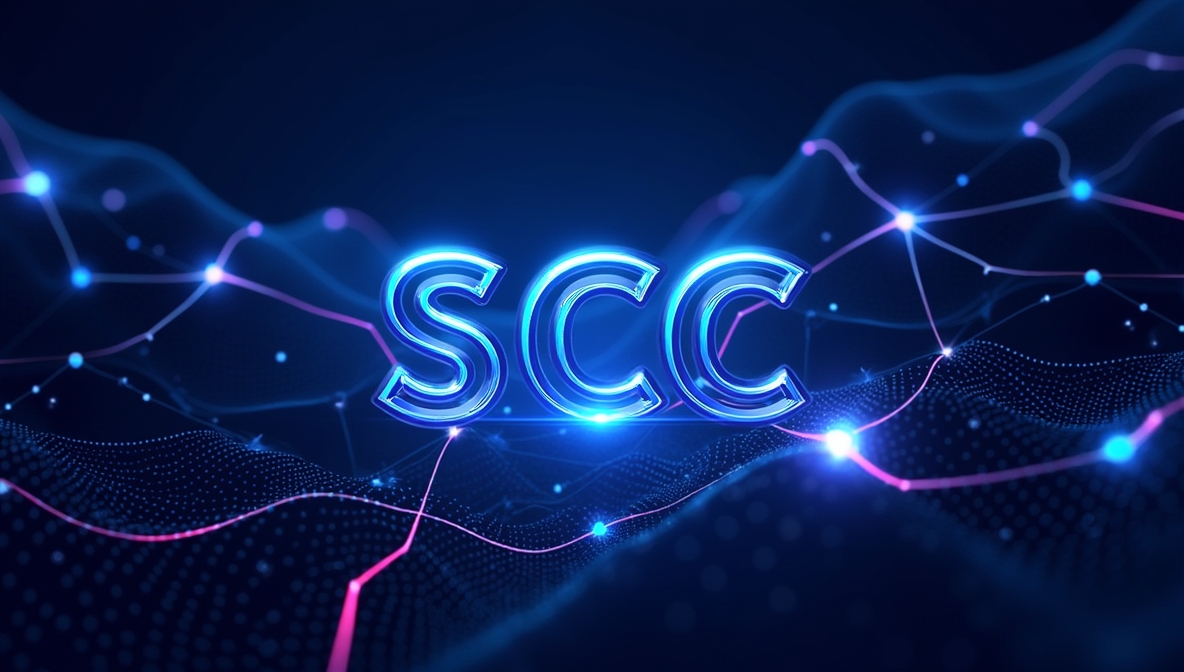
SmartChain has introduced SCC as its native token, serving as the backbone of its decentralized ecosystem. This digital asset facilitates transactions, incentivizes participation, and ensures the network runs smoothly. Understanding SCC requires looking at its purpose, functions, and potential applications.
Understanding SCC and Its Role
SCC is designed to support the SmartChain network by enabling seamless transactions and powering various decentralized applications (dApps). It acts as a unit of exchange, a staking mechanism, and a governance tool. The token is also used to reward network validators and users who contribute to the ecosystem.
Key Features of SCC
- Transaction Medium – SCC allows users to transfer value within the SmartChain network quickly and securely.
- Staking and Rewards – Holders can stake their SCC tokens to secure the network and earn incentives.
- Governance Participation – SCC holders can vote on proposals that impact the SmartChain ecosystem.
- Smart Contract Execution – The token fuels smart contracts, ensuring efficient and trustless operations.
- Liquidity Provision – Users can provide SCC to liquidity pools, earning a share of transaction fees.
How SCC Powers the SmartChain Ecosystem
The token is integral to multiple aspects of the network. Every transaction on SmartChain requires SCC for gas fees, making it indispensable for any interaction within the system. Validators, who maintain network integrity, earn SCC for securing transactions. Developers rely on SCC to deploy and manage smart contracts.
SCC Tokenomics
The supply, distribution, and utility of SCC influence its value and sustainability. SmartChain ensures a balanced approach to token issuance and circulation.
Token Supply and Distribution
- Fixed Supply – SCC has a predetermined supply cap to prevent inflation.
- Staking Rewards – A portion of SCC is allocated to users who stake their tokens.
- Developer Fund – A fraction supports ongoing development and innovation.
- Community Incentives – SmartChain rewards active participants with SCC for network contributions.
- Reserve Fund – A reserve exists to stabilize the ecosystem in volatile market conditions.
Transaction Fees and Utility
SCC is the primary currency for transaction fees on SmartChain. Unlike traditional systems that rely on intermediaries, SCC enables direct, low-cost transactions. Fees are dynamically adjusted based on network congestion to maintain efficiency.
Staking SCC: Earning Passive Rewards
Staking involves locking SCC tokens to support network operations. In return, users receive staking rewards based on the amount staked and the duration of commitment. The staking mechanism ensures decentralization and security while incentivizing long-term holding.
How to Stake SCC
- Acquire SCC – Users can obtain tokens through exchanges or community rewards.
- Choose a Staking Pool – Selecting a reliable validator maximizes earnings.
- Lock Tokens – Staked tokens remain inaccessible for a set period.
- Earn Rewards – Participants receive a share of transaction fees and block rewards.
- Unstake When Needed – After the lock-up period, users can withdraw their SCC.
SCC in DeFi and dApps
SCC integrates with decentralized finance (DeFi) platforms, allowing users to engage in yield farming, lending, and liquidity provision. Many dApps on SmartChain require SCC to function, making the token essential for accessing decentralized services.
Popular Use Cases
- Yield Farming – Users stake SCC in liquidity pools to earn additional tokens.
- Lending and Borrowing – SCC can be used as collateral for decentralized loans.
- NFT Marketplaces – Digital assets and collectibles can be traded using SCC.
- Gaming and Metaverse – Play-to-earn games utilize SCC for in-game transactions and rewards.
Security and Governance of SCC
Security is a priority for SmartChain. The network employs a consensus mechanism that ensures decentralization while preventing fraudulent activities. SCC holders also play a role in governance by voting on network upgrades, fee structures, and development initiatives.
Decentralized Governance
Governance decisions are made through proposals submitted by community members. SCC holders vote based on the number of tokens they own. This system ensures that decisions reflect the interests of the community.
Future Outlook for SCC
SCC continues to gain adoption as more developers build on SmartChain. The token’s utility expands as new dApps and DeFi protocols emerge. Institutional interest in blockchain technology further strengthens SCC’s position in the market.
The long-term vision for SCC includes:
- Expanded DeFi Integration – More financial applications using SCC.
- Broader Merchant Adoption – SCC as a payment method for goods and services.
- Interoperability with Other Blockchains – Enhanced cross-chain functionality.
- Sustainable Token Economics – Continued efforts to maintain a balanced supply and demand model.
Final Thoughts
SCC plays a vital role in the SmartChain network, serving as the fuel for transactions, staking, and governance. Its applications in DeFi, gaming, and smart contract execution make it a versatile asset. As blockchain adoption grows, SCC’s utility and demand are expected to increase, solidifying its role in the digital economy.




